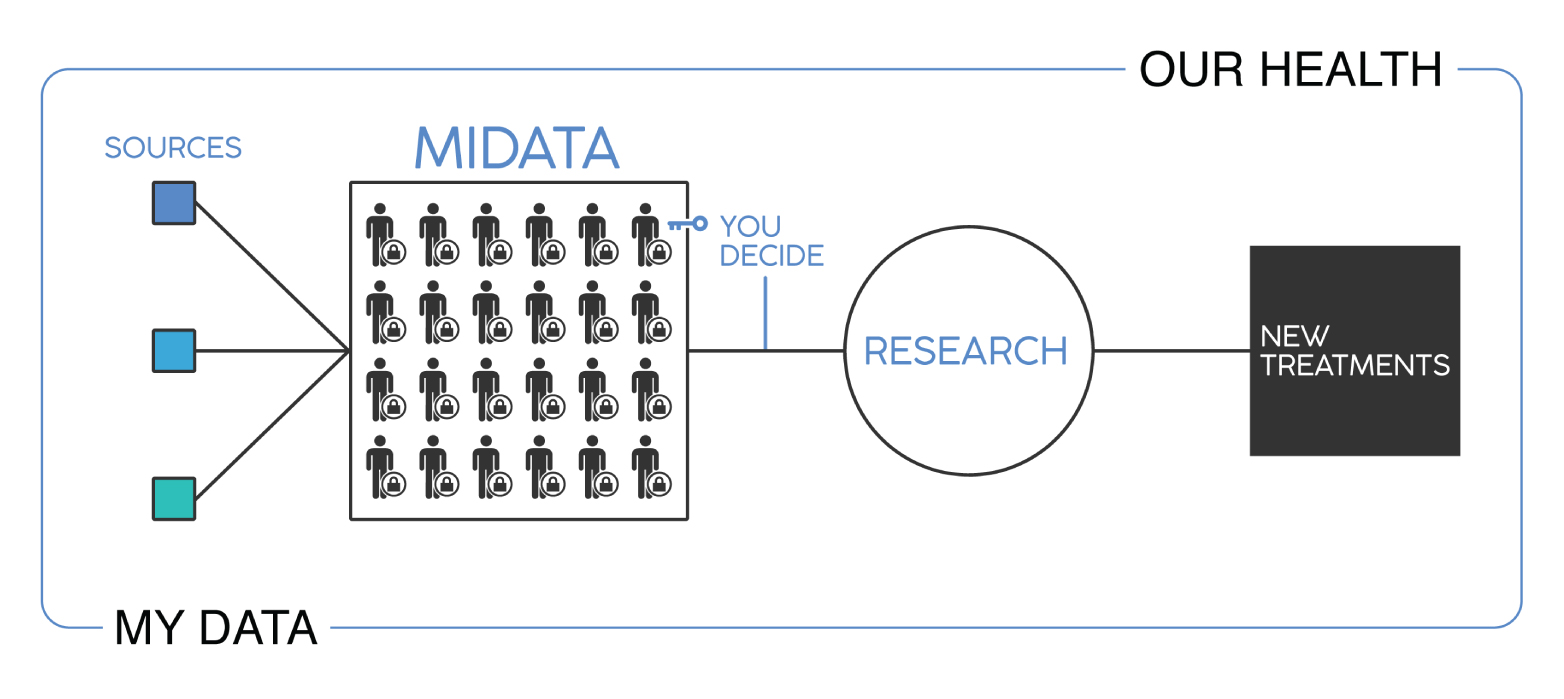Cooperative Governance of Health Data - MIDATA
Although personal health data are essential for personalized medicine, such data are usually poorly interoperable and reside in unlinked silos. This description applies both to clinical and research data and to medically relevant data collected through new mobile technologies and smart appliances. Further, citizens play a crucial role in making their data available for research. For this reason, we need a trustworthy framework to enable people to aggregate, integrate, and analyze data from different sources. Health data cooperatives such as external page MIDATA.coop, provide such a framework. This type of cooperative empowers patients to aggregate data about themselves and to control access to them. ETH Zurich and the Bern University of Applied Sciences developed MIDATA, which has been operating since 2016, serving as a platform for different research projects.
This project aims to implement three functionalities (interfaces, machine learning techniques, and systemic ethical oversight) to transform MIDATA into a full-featured and universal platform, which will be used as a resource by other projects in the Swiss Personalized Health Network (SPHN). A clinical study on Multiple Sclerosis (team Prof. A. Lutterotti & R. Martin, USZ) will be used to pilot and develop the MIDATA platform.

Project Link:
external page Midata.Coop
Project Partner:
external page www.sfa-phrt.ch
Project Team:
Felix Gille
Alessandro Blasimme
Effy Vayena
Gille, F., Vayena, E. “How private individuals maintain privacy and govern their own health data cooperative – MIDATA in Switzerland.” In Governing Privacy as Knowledge Commons, Sanfilippo, M.R., Strandburg, K.J., and Frischmann, B.M., eds. Cambridge University Press.
Gille, F., Vayena, E. & Blasimme, A. (2020). Future-proofing biobanks’ governance. Eur J Hum Genet. external page https://doi.org/10.1038/s41431-020-0646-4
Gille F., Axler R. & Blasimme A. Transparency About Governance Contributes to Biobanks’ Trustworthiness: Call for Action. Biopreservation and Biobanking. external page https://doi.org/10.1089/bio.2020.0057